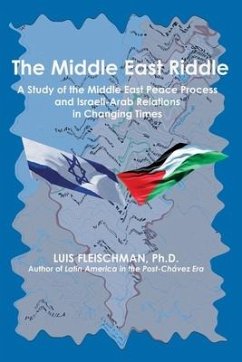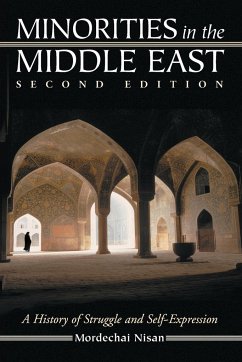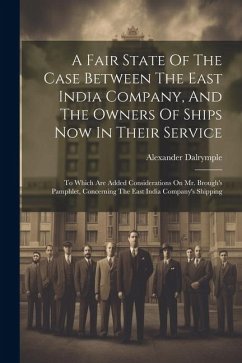
The Middle East Riddle: A Study of the Middle East Peace Process and Israeli-Arab Relations in Changing Times

PAYBACK Punkte
12 °P sammeln!
This book provides explanations for a broader audience as to what the obstacles are to the peace process and offers thoughtful perspectives that could help further the peace initiative. It analyzes factors that transcend the negotiations process, mostly relying on a broad sociological analysis. Many analysts and policy makers treated the conflict as a regular negotiation process and as such focused their analysis in the direction of how this negotiation could work. Others, treated the conflict and the interaction between Palestinians and Israelis as being one between two different narratives t...
This book provides explanations for a broader audience as to what the obstacles are to the peace process and offers thoughtful perspectives that could help further the peace initiative. It analyzes factors that transcend the negotiations process, mostly relying on a broad sociological analysis. Many analysts and policy makers treated the conflict as a regular negotiation process and as such focused their analysis in the direction of how this negotiation could work. Others, treated the conflict and the interaction between Palestinians and Israelis as being one between two different narratives that could either be reconciled or not. Some argued that the Palestinians want to put an end to the State of Israel and claim all of historical Palestine for themselves, while others believe Israelis want to impose their sovereignty over the same territory via settlement expansion, claiming that the land legitimately and historically belongs to the Jewish people. However, the history of the peace process shows that the sides have been very close to an agreement. This book searches for nuanced solutions towards progress. Thus, the political solutions seek alternatives to a Palestinian state seeking peace with Israel, which includes not only peace between the parties but also the need to provide order and normalcy for the Palestinians. It analyzes the idea of a Palestinian/Jordanian confederacy, along with its advantages and disadvantages. Likewise, it analyzes the advantages and disadvantages of an Israeli unilateral withdrawal from most of the West Bank. The book also explores the chances that the Palestinian security establishment, that has worked together with the Israeli security establishment for years, could generate the leadership necessary to restore order to Palestinian society.














